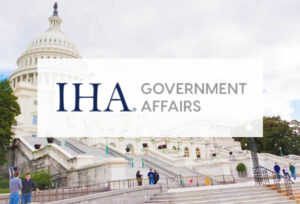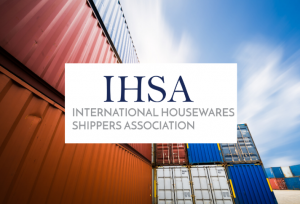In 1986, California voters approved Proposition 65 (the Safe Drinking Water and Toxic Exposure Act), a ballot initiative to address concerns about exposure to toxic chemicals. It requires California to publish a list of chemicals known to cause cancer or reproductive toxicity, and for businesses with 10 or more employees to provide warnings when they knowingly and intentionally…
CONTINUE READINGFeatured
Business Tax Breaks Scheduled to End
In 2017, the Republican-led Congress passed the Tax Cuts and Jobs Act (TCJA) using budget reconciliation to avoid a Senate filibuster and its 60-vote threshold. But the tradeoff for this process is that tax breaks benefiting IHA members and other businesses had to be temporary in order to meet budget reconciliation rules. The TCJA boosted the IRC Sec. 168(k) Bonus…
CONTINUE READINGTrade Issues Update
On June 2, Americans for Free Trade (AFT) sent a letter to the House Select Committee on the Chinese Communist Party (CCP) signed by IHA and 145 other organizations for the May 17 hearing Leveling the Playing Field: How to Counter the Chinese Communist Party’s Economic Aggression. Despite the enmity between Capitol Hill Republicans and Democrats, the Select Committee on the…
CONTINUE READINGControversial New Process for Regulations
On April 6, President Biden issued the Executive Order (EO) “Modernizing Regulatory Review” that will change the process by which federal agencies such as the U.S. Environmental Protection Agency and Departments of Transportation and Labor promulgate their regulations. The White House says these changes will improve the process, but administrative law experts believe the new…
CONTINUE READINGPeak Shipping Season Rebound Unlikely
Ocean carriers are coming to the realization that the upcoming peak shipping season will likely be a bust. Several carriers have been predicting that the Asia to U.S. market would see a rebound in container shipping during the second half of 2023. It is becoming clear now that the so-called rebound is not going to happen. Industry experts have also backed off previous…
CONTINUE READINGProtected: Exciting Changes for The Inspired Home Show 2024
This content is password protected. To view it please enter your password below: Password:…
CONTINUE READINGThe Limit, Save, Grow Act of 2023
On April 26, the U.S. House of Representatives passed the Limit, Save, Grow Act of 2023 (H.R. 2811) to suspend the federal government’s debt ceiling through either March 31, 2024, or a $1.5 trillion increase when the current $31.4 trillion ceiling runs out, whichever comes first. It’s not unusual for Congress to raise the debt ceiling so Treasury can continue to sell U.S. bonds…
CONTINUE READINGTranspacific Contract Negotiations Finalized
The majority of ocean contracts covering containers moving between Asia and the United States have been finalized. The contracts being signed contain rates that are substantially lower than the rates that were finalized in April 2022. The previous two contract cycles saw spot rates skyrocket to record high levels before finally subsiding in the fall of 2022. The new contract…
CONTINUE READINGWest Coast Ports Still Operating Without a Contract
Contract negotiations between the Pacific Maritime Association (PMA) and the International Longshore and Warehouse Union (ILWU) ports remain at a standstill. After 10 months of negotiations, there has been very little progress in resolving key issues such as automation and wages. The PMA recently called out the ILWU for intentional work slowdowns causing delays at the ports…
CONTINUE READING- « Previous Page
- 1
- 2
- 3
- 4
- 5
- 6
- …
- 19
- Next Page »





